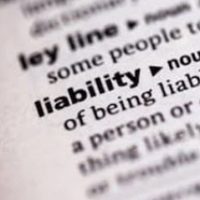Liability In Florida Auto Accidents

Normally, an automobile accident in Florida is handled via the state’s no-fault system, meaning that a driver who is injured will file a claim with their insurer for their medical bills, instead of filing suit against the (allegedly) negligent party who caused the crash. However, the law provides an exception for those whose injuries are “significant and permanent,” allowing them to file suit against a driver or other actor who caused their injuries. If you are in this position, it is crucial to understand the nature of liability in these types of cases.
No-Fault Insurance: Cutting Down On Lawsuits
Florida is a no-fault state for purposes of auto insurance. The intent of enacting such a system was, at the time, to prevent minor lawsuits from clogging district court dockets. To ensure injured plaintiffs have the money to pay for medical care, each Florida driver is required, as of this writing, to carry at least $10,000 in personal injury protection (PIP) insurance, with a comparable amount for property damage liability. At least in theory, if one is injured in a car accident, one can file a claim with their PIP insurer, who will then cover their medical bills up to 80 percent of the amount on your policy.
If someone’s injuries are severe, however, the legislature reasonably assumed that their medical bills might far outstrip the amount of their personal injury protection policy, which is why the exception for ‘significant and permanent’ injuries was written into the relevant statute. If someone is injured in a car accident and their injuries meet the threshold, they can file suit in court in the same manner as any other plaintiff against any other defendant.
Comparative Negligence: Recovery Is Not Barred
If your injuries are sufficiently severe that you are able to file suit in a Florida court, you may come across a concept known as comparative negligence. In some other states, if a plaintiff is determined to be partially liable for their own injuries, there is a chance they may not be able to recover. For example, in Georgia, if a plaintiff is ruled to have been more than 50 percent at fault for the accident in which they were injured, they cannot recover any damages from the plaintiff.
Florida follows a rule called modified comparative negligence. This means that regardless of the plaintiff’s percentage of fault, they are able to recover their damages minus their own percentage of fault. For example, if you have been injured in an accident, but you were speeding, a jury might rule that you were 25 percent at fault for your own injuries. This means that you would still be able to recover 75 percent of your damages from the defendant or defendants, even though you were partially responsible.
Contact A Tampa Car Accident Attorney
If you have been injured in a car accident severely enough to be able to file suit against the other driver, you may need experienced legal help to ensure your questions are answered and you are on the right path toward recovery. The Tampa car accident attorneys at the Rinaldo Law Group are well versed in this area of law, and will work hard to give your case the best chance at success. Contact our offices for a free consultation.
Resource:
leg.state.fl.us/statutes/index.cfm?App_mode=Display_Statute&URL=0600-0699/0627/Sections/0627.737.html












